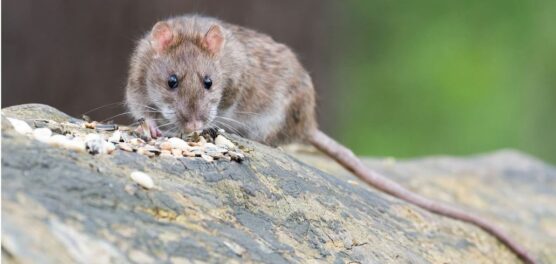A bill introduced in the California Legislature would further restrict the use of rat poison and allow members of the public to sue over illegal use and sale of rodenticides in the state.
The Poison-Free Wildlife Act, Assembly Bill 2552, was introduced by RAssemblywoman Laura Friedman, (D-Glendale), and is co-sponsored by the Center for Biological Diversity and the Raptors Are The Solution, or RATS, project. It expands on the existing moratorium on rodenticides because, the two organizations said, people, pets and wildlife continue to be harmed by them.
“Rat poison was intended to control pests but instead has led to suffering and death for birds, hawks, foxes and so many other innocent wildlife,” Lisa Owens Viani, director of RATS, said in a statement. “Knowing there are safer alternatives out there, it makes perfect sense to take these dangerous poisons off the market. Deadly rodenticides don’t have a place in a safe, humane community.”
Current law and the bill introduced Wednesday allow exemptions if use of the rodenticides is necessary to protect public health, water supply or agriculture.
Under the bill, two first-generation anticoagulant rodenticides, chlorophacinone and warfarin, join a list of prohibited rat poisons that already includes second-generation anticoagulant rodenticides and first-generation anticoagulant rodenticide diphacinone.
Anticoagulant rodenticides, developed in the 1940s and 1950s, disrupt the normal blood clotting or coagulation process so that poisoned animals die from uncontrolled bleeding or hemorrhaging. The first-generation products weren’t lethal until a rodent consumed the bait for several consecutive feedings.
The second generation of this class of rodenticides, on the other hand, is more potent: It takes a single dose to kill an animal. It’s also much more dangerous to other animals, like mountain lions and spotted owls, that feed on the poisoned rodents.
Although second-generation anticoagulants have been restricted in the state since 2021, unintended poisoning by rodenticides remains a widespread problem.
The California Department of Fish and Wildlife found in 2022 that over 88% of raptors, 80% of large game mammals and 79% of non-game animals were exposed to anticoagulant rodenticides, including both first and second generations of the poison.
Animals with high exposure rates to rodenticides include endangered species such as the Swainson’s hawk, San Joaquin kit foxes and northern spotted owls.
In addition, the rodenticides are a risk for children and pets who might ingest the poison. There were more than 3,000 human poisonings in the U.S. in 2021, including at least 2,300 involving children under 6 years old, according to the American Association of Poison Control Centers.
The legislation would break new ground in California law, according to the two environmental advocacy groups, by allowing community members to assert the rights of animals and challenge the illegal use and sale of rodenticides in court.
This, they said, would reduce the enforcement costs for state and local officials.
“The public should be given the chance to challenge those who skirt the law and hurt our pets and wild neighbors,” said J.P. Rose, a senior attorney with the Center for Biological Diversity. “Animals experience stress, fear and pain. This sensible piece of legislation allows them to be treated with decency and compassion.”
Like this:
Like Loading...
Related





 Tweet This
Tweet This Facebook
Facebook Digg This
Digg This Bookmark
Bookmark Stumble
Stumble RSS
RSS


























REAL NAMES ONLY: All posters must use their real individual or business name. This applies equally to Twitter account holders who use a nickname.
0 Comments
You can be the first one to leave a comment.